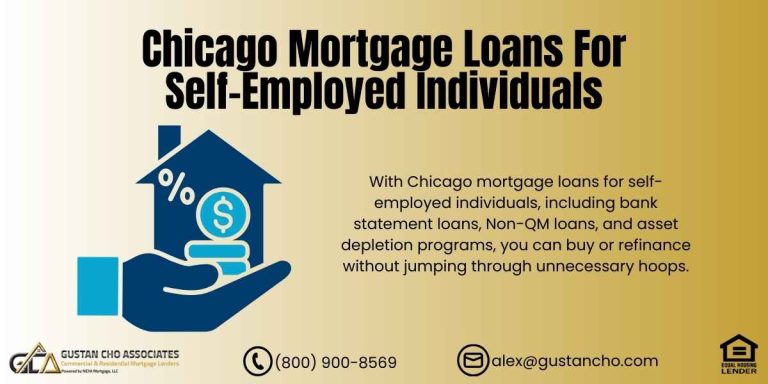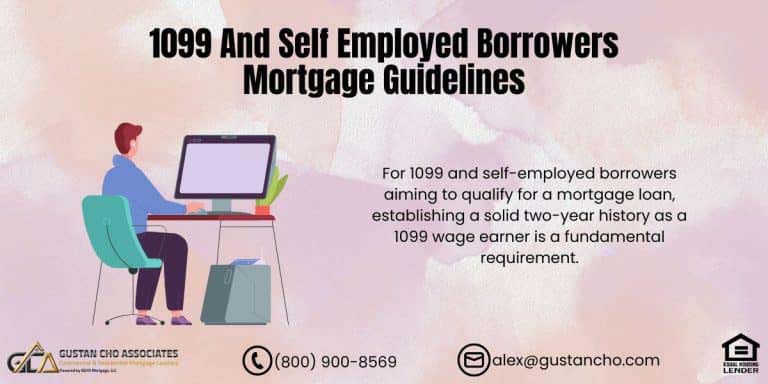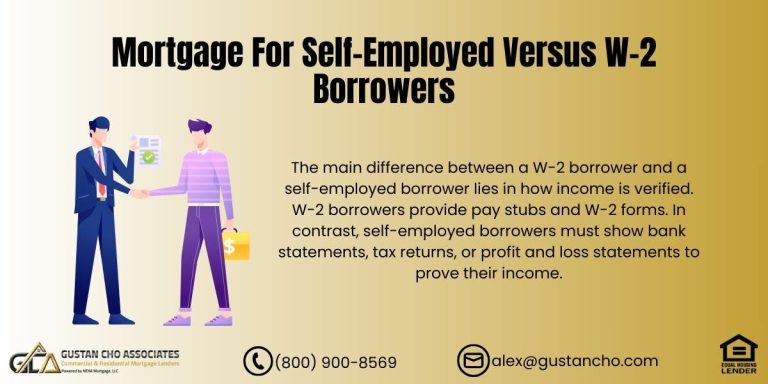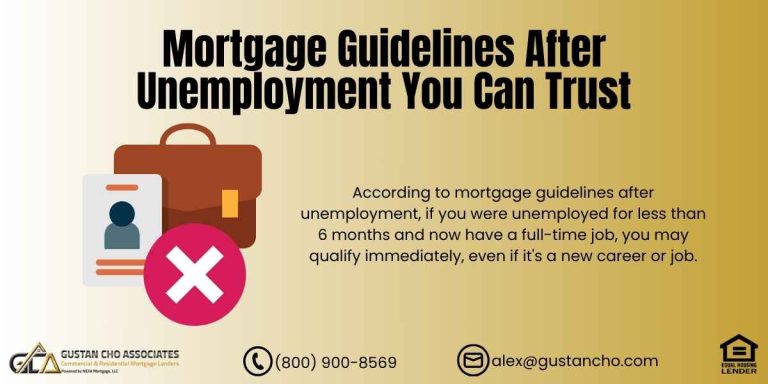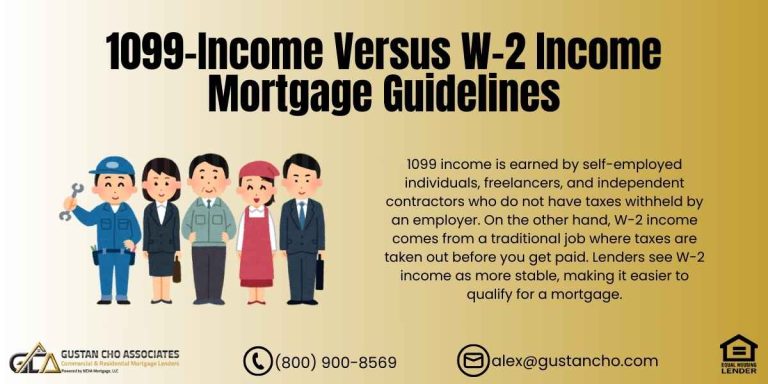This guide covers negative income with co-borrowers mortgage guidelines. HUD, the parent of FHA, allows non-occupant co-borrowers to be added on borrowers who has little or no income. Income is the most important factor when it comes to qualifying for FHA loans. Income is more important than credit when it comes to qualifying for mortgage. Mike Gracz, a senior mortgage loan originator at Gustan Cho Associates said the following about negative income with co-borrowers:
Can have the best credit in the world but without documented income, there is no way a homebuyer can qualify for any home loan.
HUD, the parent of FHA, allows borrowers with less than perfect credit to qualify for FHA home loans. Can have a credit score as low as 580 and still qualify for a 3.5% down payment home purchase FHA insured mortgage loan. Borrowers can also have outstanding collection accounts and charge off accounts and still qualify for a FHA loan without having to pay off the delinquent balance. In this article, we will discuss and cover negative income with co-borrowers mortgage guidelines.
Qualifying For a Mortgage With Outstanding Judgments and Tax-Liens
FHA also allows borrowers with judgments and tax liens to qualify as long as they have a written payment agreement with the judgment creditor and/or the Internal Revenue Service. Borrower needs to have been making at least three payments and can provide three months canceled checks. However, those with little income, no income, or negative income can still qualify for a FHA loan as long as they can add non-occupant co-borrowers. HUD allows for multiple non-occupant co-borrowers to be added to the main borrower for income qualification.
Negative Income With Co-Borrowers Case Scenario
How can someone have negative income? Negative income is often common with self employed borrowers. Self employed borrowers have the advantage of writing a lot of business expenses off where many times. Self employed borrowers can have negative income on paper where their business expenses exceed the income they make. Dale Elenteny, a senior mortgage loan officer at Gustan Cho Associates said the following about negative income with co-borrowers:
This yields in negative income where the self employed borrower has little to no tax liability and many times their losses can be carried forward to future years.
This is great for the person because they take advantage of the tax loopholes. Can expense many things out where they have limited tax liabilities. However, it will be very bad when it comes to qualifying for a home loan. Many self employed borrowers will need non-occupant co-borrowers to qualify for a FHA loan. This is due to their limited income, no income, or negative income they declare on their tax returns. Many self employed borrowers have questions in qualifying with negative income with co borrowers.
Facing Negative Income? Co-Borrowers Can Help You Qualify
Learn how adding a co-borrower can improve your mortgage approval chances.
How Do Lenders Qualify on Negative Income With Co-Borrowers
Many borrowers, as well as many mortgage loan originators have questions on how mortgage underwriters qualify on negative income with co borrowers. John Strange, a senior mortgage loan originator at Gustan Cho Associates said the following about how lenders qualify on negative income with co-borrowers:
One of the biggest reasons on why self-employed borrowers get last-minute mortgage loan denials is because the mortgage loan originator has qualified negative income with co borrowers wrongly.
Many loan officers think that borrowers can zero out the negative income with co-borrowers. However, this is not allowed. Cannot zero out negative income with co-borrowers. The negative income needs to be taken into account. For example, lets take this case scenario on negative income with co-borrowers:
- Borrower A is the main borrower and has declared losses of $12,000 on his tax returns which is negative -$1,000 per month income
- Borrower B is the non-occupant co-borrower and makes $24,000 per year, which is positive income which is a monthly gross income of $2,000 per month.
The qualifying income on the above borrowers with negative income with co borrowers is derived by subtracting the negative $-1,000 income of mortgage loan borrower A by the positive $2,000 income of mortgage loan borrower B which yield the qualifying income of $1,000 ( $2,000 co borrower income and subtract the negative income by borrower A ). There are still mortgage loan officers that get confused when it comes to negative income with co borrowers and just zero out the negative income when qualifying a mortgage loan borrowers.
Negative Income With Co-Borrowers Mortgage Guidelines
Learn how negative income from a co-borrower affects mortgage approval. Discover lender guidelines, solutions, and options with Gustan Cho Associates.
Understanding Negative Income With Co-Borrowers
Using a co-borrower on your mortgage can boost overall strength through extra income, better credit, or more reserves. But things can get tricky at the lender’s desk if the co-borrower has negative income—where their monthly obligations outweigh their earnings. Underwriters check very closely because their guidelines are clear on handling negative income.
This situation usually occurs with self-employed people, owners of rental properties that run in the red, or anyone facing non-recurring business losses. Knowing how different mortgage programs treat this negative cash flow lets you and your loan officer tweak the application for a better shot at approval.
What Does Negative Income Mean in Mortgage Lending?
Negative income shows up in a few ways:
- Bottom-of-the-line earnings on tax returns are lower than recurring monthly debts.
- A rental property’s financial summary still shows a deficit after subtracting depreciation and other write-offs.
- A self-employed person’s profit after business write-offs drops below their living expenses.
For mortgage underwriting, lenders rely on IRS records to check income. When losses exceed gains, they must use net income instead of gross, which may lead to a negative final number.
How a Negative Income Co-Borrower Affects Your Approval Chances
Income Rules
Mortgage lenders look at all incomes to decide if you qualify. If one co-borrower has a loss, that amount reduces the other co-borrower’s total income.
Debt-to-Income Ratio
A co-borrower’s negative income can increase your overall DTI (debt-to-income ratio). Even if you have a strong income, the loss can hurt your chances of getting the loan.
Approval Risks
A high DTI can trigger a denial. Lenders interpret negative income as a warning sign that the borrower may struggle to repay the mortgage.
Negative Income on FHA Loans
- FHA loans count all incomes and losses from co-borrowers.
- Rental losses, business losses, and unreimbursed costs will cut your qualifying income.
- Even if a co-borrower doesn’t live in the house, their income (or losses) still affect the loan.
Negative Income on Conventional Loans
- Fannie Mae and Freddie Mac need IRS records and apply the same rules to all co-borrowers.
- Losses from business activities or rental real estate must be stacked against other income streams on the application.
- Conventional lenders might be stricter than FHA lenders regarding co-borrowers who show negative income.
VA and USDA Mortgage Co-Borrower Guidelines
- VA loans allow a spouse’s income and losses to be included if both spouses are on the application.
- A negative income from the spouse will lower the veteran’s income.
- USDA loans require that all household income be assessed. Negative income reduces the household’s qualifying ratio and can hurt program eligibility.
Overcome Negative Income Challenges With Co-Borrowers
Discover strategies to secure a home loan even with low or negative income.
How a Negative-Income Co-Borrower Might Still Help
Even with the drawbacks, a co-borrower who shows negative income can be a boon when they:
- Bring a credit score that boosts the overall file.
- Show cash reserves or assets that far outweigh the losses.
- Have minimal debt, while the primary borrower’s income is strong enough to balance the negative figure.
How to Manage Negative Income in Co-Borrower Situations
Leave the Co-Borrower Off
Suppose the primary borrower can meet the loan’s eligibility, income, and debt standards. In that case, the lender might allow the application to proceed without the negative-income borrower, skipping the headaches.
Using Alternative Loan Programs
Non-QM or non-qualified mortgage lenders offer flexible options for proving income. You might see:
- Bank statement loans.
- Asset depletion loans.
- No-ratio or debt service coverage ratio (DSCR) loans.
- These programs can overlook negative income figures entirely.
Refining Tax Return Calculations
Some losses show up as paper losses—like depreciation. Underwriters can often add back these non-cash costs, which boosts usable income when looking at tax returns.
Key Takeaways on Negative Income With Co-Borrowers
- Negative income lowers the total qualifying income for the loan.
- Lenders must subtract IRS-verified losses from reported gains.
- FHA, VA, USDA, and Conventional loans count negative income in the debt-to-income (DTI) ratio.
- Non-QM loans offer more leeway for borrowers in this situation.
FAQs About Negative Income With Co-Borrowers
What is Negative Income For a Mortgage?
Negative income happens when tax losses exceed income, lowering lenders ‘ qualifying numbers.
Can Negative Income Cause a Mortgage Denial?
Yes, if it drives the DTI ratio beyond the lender’s limit.
Does FHA Allow Co-Borrowers With Negative Income?
Yes, but their losses will still count in the DTI ratio.
Can I Exclude a Co-Borrower With Negative Income?
Yes, as long as the primary borrower can qualify on their own.
Do Non-QM Loans Count Negative Income?
Usually no. Many non-QM loans let you use different proof of income and often overlook losses.
Does Rental Property Depreciation Count as Negative Income?
No. Depreciation is added back to the income, which usually helps rather than hurts the qualifying number.
Can a Co-Borrower With Strong Credit But Negative Income Still Help?
Absolutely. If they can show enough assets or help lower other risks, their strong credit can make the deal work.
Are VA Loans Flexible With Negative Income?
Not really. VA loans count all income and losses from spouses and co-borrowers.
Do USDA Loans Allow Ignoring Negative Income?
No. USDA loans must include all household income, even the negative parts.
What’s The Best Way to Qualify if My Co-Borrower Has Negative Income?
Look into non-QM lenders, or go forward with your strong income and credit if that’s enough.
This BLOG on negative income with co-borrowers was UPDATED on August 19th, 2025.
Don’t Let Negative Income Stop You From Buying a Home
Use co-borrowers strategically to meet lender guidelines.




